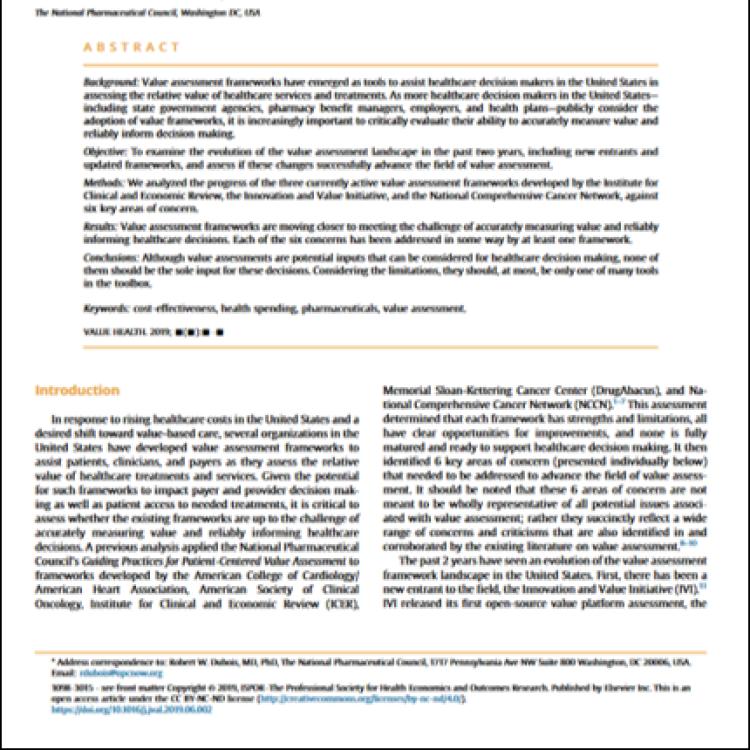This study examined the evolution of the value assessment landscape in the last two years, focusing on three frameworks that are actively conducting assessments: the Institute for Clinical and Economic Review (ICER), the Innovation and Value Initiative (IVI) and the National Comprehensive Cancer Network (NCCN).
In particular, the study examined the three frameworks against six areas of concern, which were first outlined in a previous Health Affairs study conducted by the same authors. These concerns include:
- Value assessments should be transparent and reproducible.
- Value is dynamic and needs to be considered and captured as such.
- Value assessments should adopt broad system perspectives in what they assess and how they assess it.
- Value assessments should incorporate what is important to patients, even if the end user for a framework is the payer.
- A diversity of value assessment approaches that reflect the differing needs of stakeholders should remain; value assessments should reflect user preferences.
- Assessments of value should be separate from assessments of budget impact and affordability.
The 2019 study noted that each concern has been addressed in some way by at least one framework, but more progress is needed before the widespread adoption of frameworks for decision-making. Considering all of these limitations, the authors concluded that value assessment frameworks should, at most, “be only one of many tools in the toolbox” utilized by health care decision-makers. Frameworks – in their current state – are not ready for prime time and should not be “the sole input for these decisions,” they wrote.

Dubois RW, Westrich K.
Published online ahead of print in Value in Health, July 31, 2019